Even BDRC's meticulously managed archives still hold surprises! We recently discovered 150 uncataloged and unscanned Tibetan texts in the BDRC office — collected by our founder E. Gene Smith (1936-2010).
These precious texts have survived for centuries, and it is urgent that we work together to digitally preserve them now.
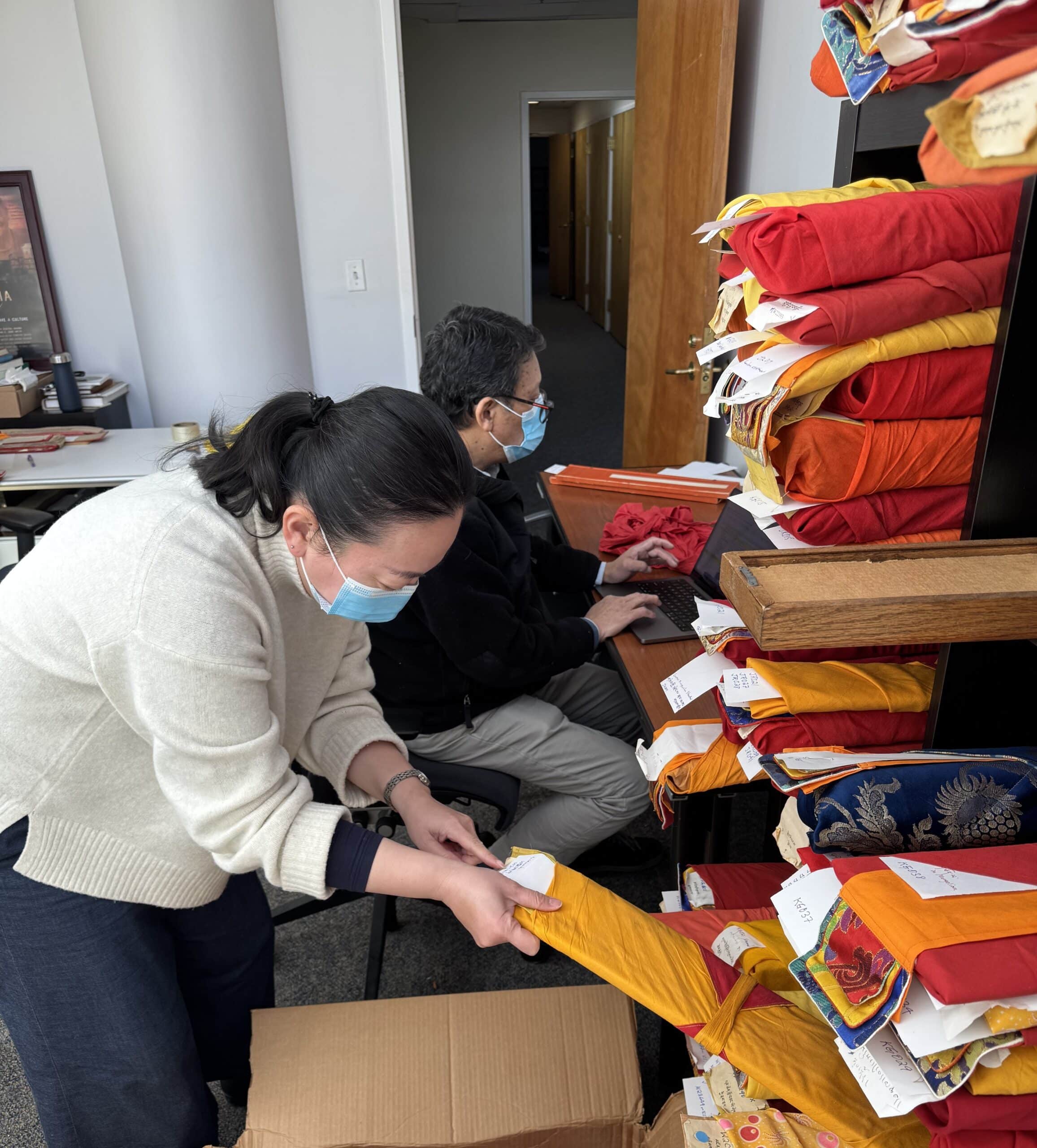 Cataloging Gene Smith's pechas at the BDRC office in Boston.
Cataloging Gene Smith's pechas at the BDRC office in Boston.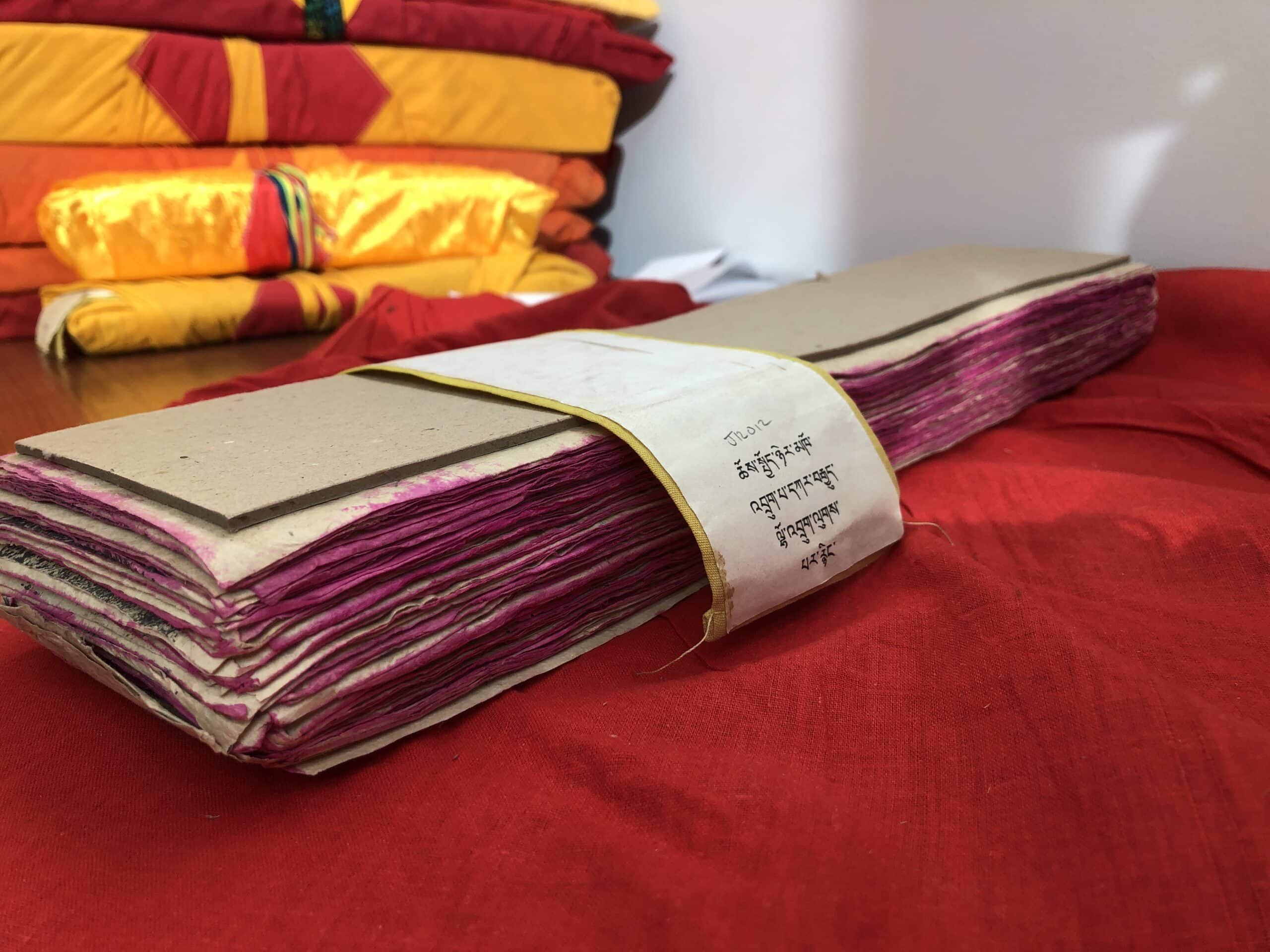 Tibetan texts from Gene Smith's personal collection.
Tibetan texts from Gene Smith's personal collection. Over decades, Gene Smith amassed these 30,000 pages of woodblock prints and handwritten texts, part of his much wider lifetime collection. Each text was carefully selected because of its rarity. Many are one of a kind manuscripts, and others are prints that never circulated widely even in Tibet; most are unknown even today. These unpublished works now await full-color digitization to preserve their significance.
As BDRC celebrates our milestone 25th anniversary, we're not just looking back—we're making unprecedented strides forward. While upgrading our digital infrastructure, we've embarked on one of our most meaningful preservation projects yet: digitizing these 150 extraordinary texts from the personal collection of our visionary founder.
 E. Gene Smith and Mattheiu Ricard with Gene Smith's text collection at the Rubin Foundation, New York
E. Gene Smith and Mattheiu Ricard with Gene Smith's text collection at the Rubin Foundation, New YorkTwo woodblocks prints from Bhutan illustrate the rarity and beauty of these texts. The BDRC digital archive doesn't have copies of either, which means that scholars and translators have never had easy access to them before.
 A 250 page compilation of Drukpa Kagyu prayers and rituals from Bhutan.
A 250 page compilation of Drukpa Kagyu prayers and rituals from Bhutan.The first text is notable for the craftsmanship of the carving, represented by the highly elaborate frame around the title on the first page. The geometric border designs surround a ring of auspicious symbols that glorify the title. And in this case we don't have to judge the book only by its cover as the content is also unique. This is a compilation of Drukpa Kagyu prayers and rituals spanning over 250 pages that, to the best of our knowledge, has not been reproduced in the modern era in this form.
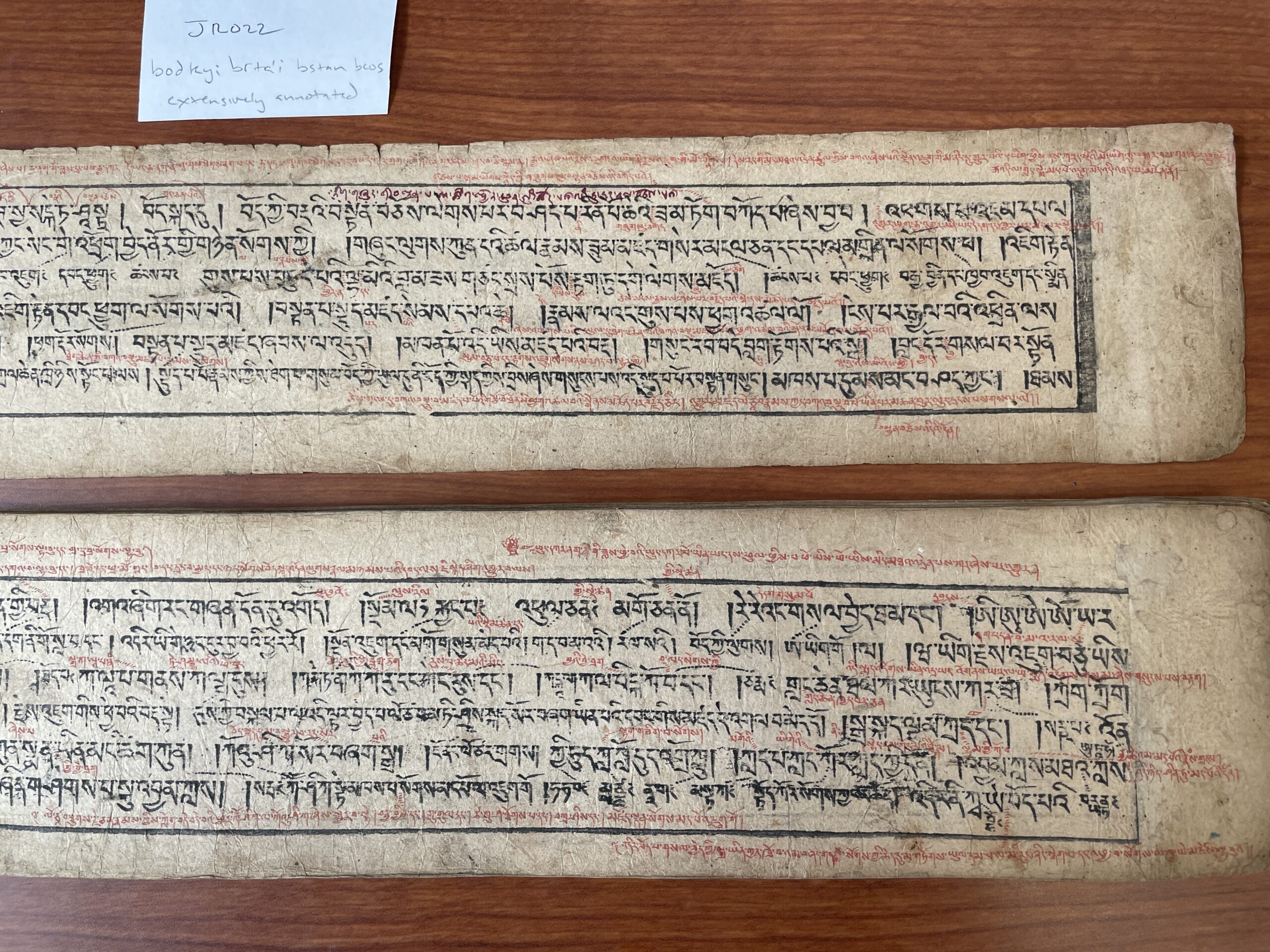 Bhutanese text on the language arts by Zhwa-lu lo-tsā-ba Chos-skyong-bzang-po (1441-1527).
Bhutanese text on the language arts by Zhwa-lu lo-tsā-ba Chos-skyong-bzang-po (1441-1527).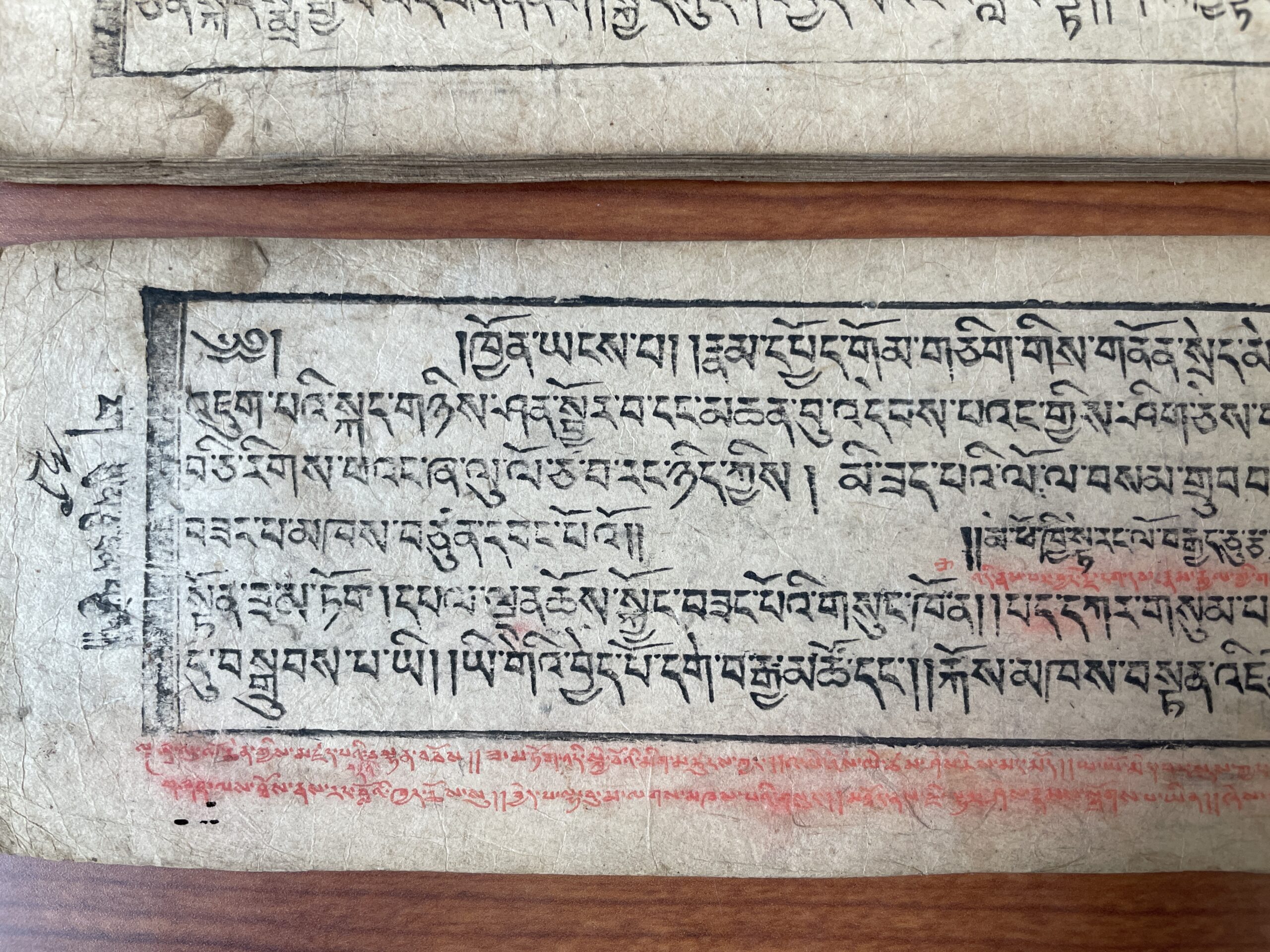
These are some of the most fragile – and rare – texts in the collection. Consider this exceptional Bhutanese woodblock print of Zhwa-lu lo-tsā-ba Chos-skyong-bzang-po's (1441-1527) classic language arts work. What makes this edition unique are the extensive red ink annotations by an esteemed scholar—notes already beginning to fade. High-quality digitization will allow researchers to zoom in on these precious handwritten insights before they're lost to time.
These fragile pages represent the intersection of Buddhist scholarship across centuries, with insights that could illuminate our understanding of language, philosophy, and history.
To undertake the scanning, we've partnered with the Boston Public Library's specialized digitization workshop, where expert technicians use non-destructive methods to capture every nuance of these fragile manuscripts. The precision equipment photographs each page without damaging centuries-old bindings or delicate papers—preserving not just the words, but the physical essence of these sacred texts.
This meticulous process comes at a cost, but BDRC has always prioritized digital preservation of the highest standard. The images here offer a glimpse into the careful process—each page handled with reverence, each image captured with museum-quality precision.
This work began in mid-April and will continue for 7-8 weeks, with each passing day bringing us closer to preserving texts that might otherwise be lost to time. Once the texts are scanned and cataloged they will be published online, immediately enriching the universal archive of primary sources belonging to Himalayan and Inner Asian Buddhism.
This project is dear to BDRC because these texts are in our founder's personal collection and this is our 25th anniversary year. Digitizing them and making them universally accessible is truly a fitting way to honor Gene Smith's legacy.
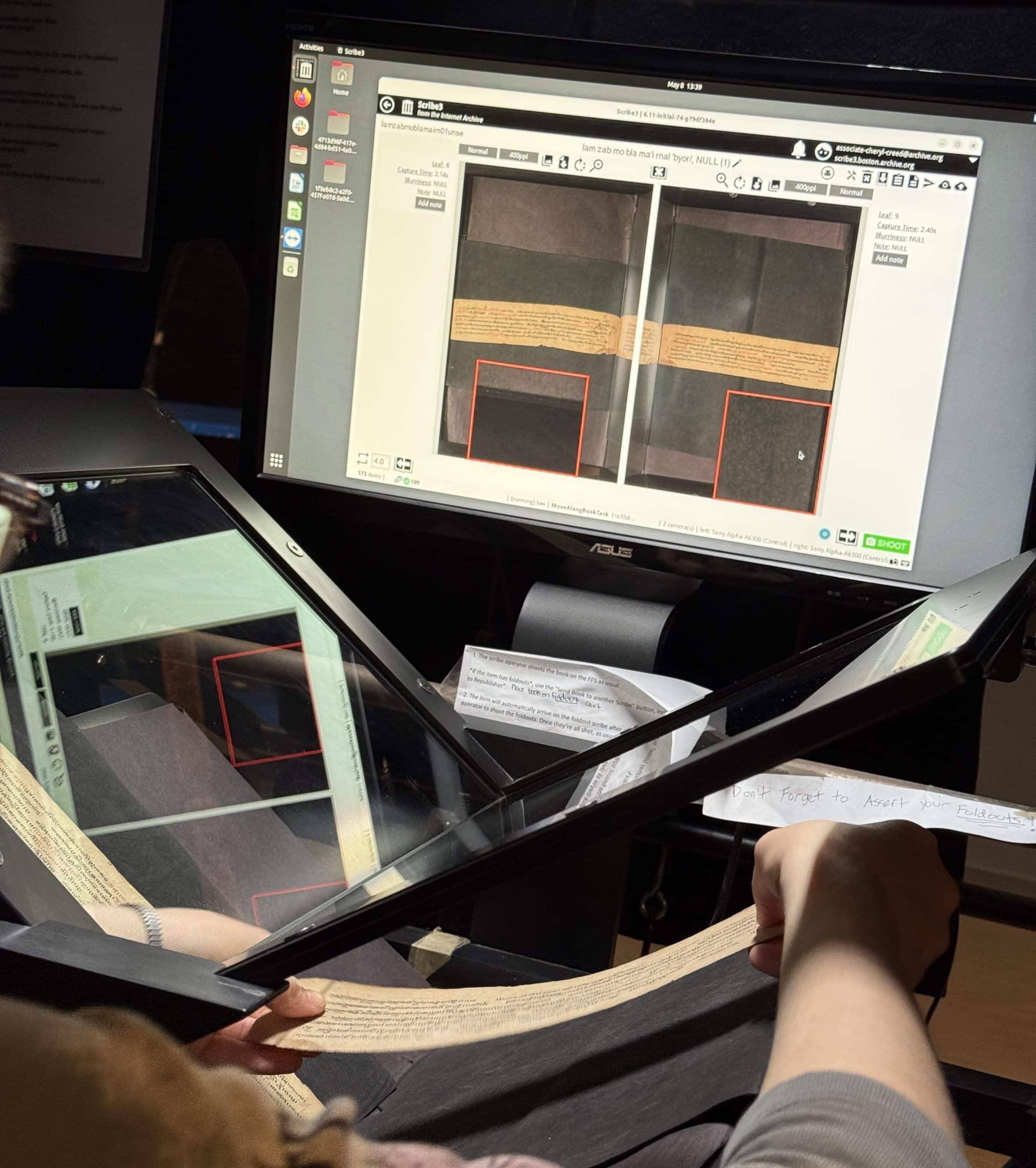 Page of text on a book scanner at the Boston Public Library.
Page of text on a book scanner at the Boston Public Library.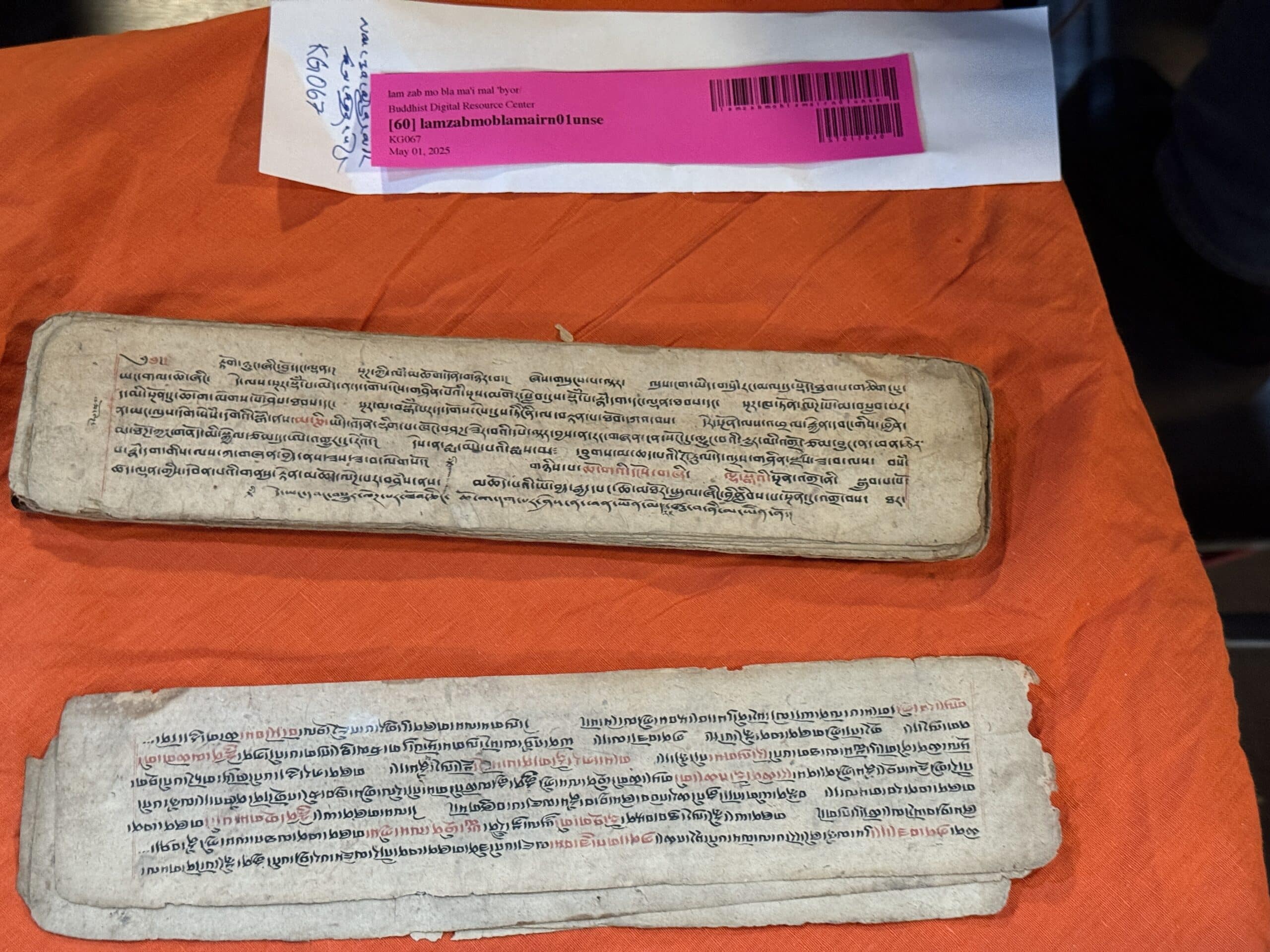 Text pages lined up ready for scanning at the Boston Public Library.
Text pages lined up ready for scanning at the Boston Public Library.




Sorry, the comment form is closed at this time.